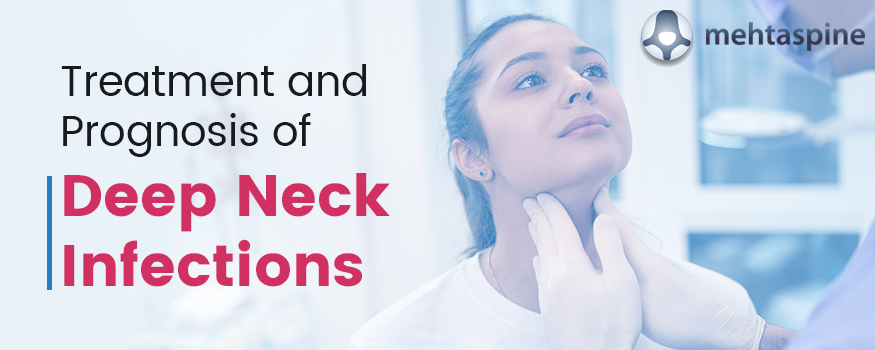Treatment and Prognosis of Deep Neck Infections
Deep neck infections are a common medical condition that involves an infection of certain anatomical structures located in the area between the mandible and clavicle, including the pharynx, tonsils, larynx, trachea, and lymph nodes. It is important to understand how scoliosis affects the immune system to properly diagnose and treat deep neck infections.
- Symptoms: Common symptoms of deep neck infections include sore throats, difficulty swallowing or breathing, fever, and chest pain. In more severe cases, throat abscesses may form which may require surgical draining.
- Causes:There are several potential causes of deep neck infections, including bacteria, viruses, fungi, and parasites. Bacteria are the most common cause of deep neck infections and can spread from another infection in the body or contact with an affected individual.
- Diagnosis:Diagnosing a deep neck infection typically involves a physical examination of the throat as well as imaging tests such as CT scans or ultrasound. Blood tests may also be used to detect the presence of an infection.
- Treatment: Treatment for deep neck infections often involves antibiotics and surgical drainage depending on the severity of the infection. Physical therapy can also help reduce pain and swelling associated with deep neck infections.
- Spinal Correction Surgery:For scoliosis patients, spinal correction surgery can help improve the immune system. This surgery involves realigning the spine and correcting deformities to reduce the pain and discomfort associated with scoliosis.
- Complications:Potential complications from deep neck infections include abscesses, airway obstruction, sepsis, meningitis, brain abscesses, and facial nerve paralysis. Early diagnosis and treatment are essential to reduce the risk of these complications.
- Prevention: To prevent deep neck infections, it is important to practice good hygiene, eat a healthy diet with plenty of fruits and vegetables, and avoid contact with individuals who may have an infection. Additionally, it is important to get enough rest and exercise regularly.
- Finding a Posterior Spinal Correction Surgeon in the UK:When searching for a qualified posterior spinal correction surgeon in the UK, it is important to research the doctor’s experience and qualifications. Reviews and ratings of past patients can also be used to evaluate the doctor’s skill level.
Deep neck infections can have serious consequences, and it is important to understand the causes, symptoms, diagnosis, and treatments associated with these infections to reduce the risk of complications. Furthermore, spinal correction surgery for scoliosis patients may help improve the immune system and make treatment more effective.
When looking for a qualified spinal deformity correction surgeon in the UK, it is important to research their experience and qualifications and read reviews by past patients. With the right treatment plan and a qualified doctor, deep neck infections can be effectively managed.
Jwalant Mehta spine surgeon in the UK who specializes in posterior spinal correction surgery for scoliosis patients. He has extensive experience in this field and is well-known for providing excellent care to his patients. His experience and dedication to patient satisfaction make him one of the best spine surgeons in the UK. If you are looking for a qualified spine surgeon in the UK, look no further than Jwalant Mehta.


